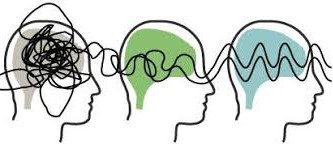
Faith Painfully Tested
The scene is Poland, winter of 1945. Just as Poles are sighing in relief that the Nazi death camps have been liberated and the Nazis vanquished, the country is occupied by the Soviets. One nightmare is exchanged for another.
The situation is played out in a Netflix movie called The Innocents, which is based on actual events. Mathilde Beaulieu, played by Lou de Lâage, is a young physician intern working with the French Red Cross. She and her colleagues’ mission is to find and treat French survivors of the German camps.
But a Polish nun arrives at their hospital and persuades Mathilde to come to her convent. Mathilde is shocked to learn that nearly a dozen nuns, having been raped repeatedly by Russian soldiers, are in an advanced state of pregnancy, and the prayerful chants of the nuns from the chapel mix with the cries of nuns in labor.
How Could a Just God Allow It?
The nuns are plagued by guilt, shame and difficult questions. How will the convent accommodate new mothers and their babies? How will people react when the word gets out? Should the pregnant nuns re-think their vocations? How will the convent, and the nuns, survive the permanent occupation by Russian troops? And the most important question, perhaps – one shared by many of us – how could a just God allow this to happen?
When Mathilde, who describes herself as a non-believer, asks Sister Maria how the nuns are able to cope, Maria responds:
“You know, faith. At first, we’re like a child that his father holds by his hand, who feels safe. A moment comes, and I think it always comes, when the father will let you go. We’re lost, alone in the dark. We call, nobody answers. We’re getting ready, we’re surprised. We’re hit in the heart. That’s the cross. Behind all joy, there is the cross.”
The movie doesn’t answer the question about how God can allow evil. That’s gone unanswered satisfactorily for many for thousands of years. For me, the best answer has to do with our freedom, and the freedom of a universe of God’s design. How could we be free – especially to choose or reject God – if he/she controlled what happens to us?
Good Parents Sometimes Intervene
I don’t believe there’s any contradiction between that idea and the notion that God CAN intervene, and perhaps, does on occasion. Good parents sometimes have to intervene in their children’s lives but do so as little as possible.
The words of the prophet Isaiah come to mind, however: “For my thoughts are not your thoughts, neither are your ways my ways, says the Lord. For as the heavens are higher than the earth, so are my ways higher than your ways and my thoughts than your thoughts.”
We certainly have a way of looking at death that differs greatly from God’s. For many of us, it’s the worst thing that can happen. Clearly, we lack trust in our father/mother.
One of the most powerful parts of the film is the nuns’ firm faith alongside their questioning and doubt. For me, the message is that skepticism is compatible with faith, and most of us who search for God, have some “amount” of both. I worry more about the “person of faith” who acknowledges no doubt, either to others or him/herself – smug in his/her certainty – and the person who is indifferent.
Up to Their Ears in Atheism
In commenting on a work by Friedrich Nietzsche about the “death of God,” theologian Tomas Halik in his book, “Patience with God: The Story of Zacchaeus Continued in Us,” writes about such “believers:”
“They are up to their ears in atheism, although they are obviously unaware of it, because God doesn’t interest them.”
Whatever else the nuns exhibit, there isn’t an ounce of smugness or disinterest. Instead, they exhibit trust – so elusive to many of us humans – that manifests itself in joy. The movie concludes with a letter from Sister Maria to Mathilde in the brief time when the sisters are recovering from one period of adversity and awaiting another.
”Dear Mathilde, the dark clouds have been hunted. We have here the sun in the sky. And you are in our hearts. Other wars may come. Other dangers threaten us; it will soon be difficult to write to us. But whatever our fate is, I feel ready to face it. I know, even if it makes you laugh, God sent you. Let him accompany you through the trials and that joy never misses you. Yours, Maria.”




